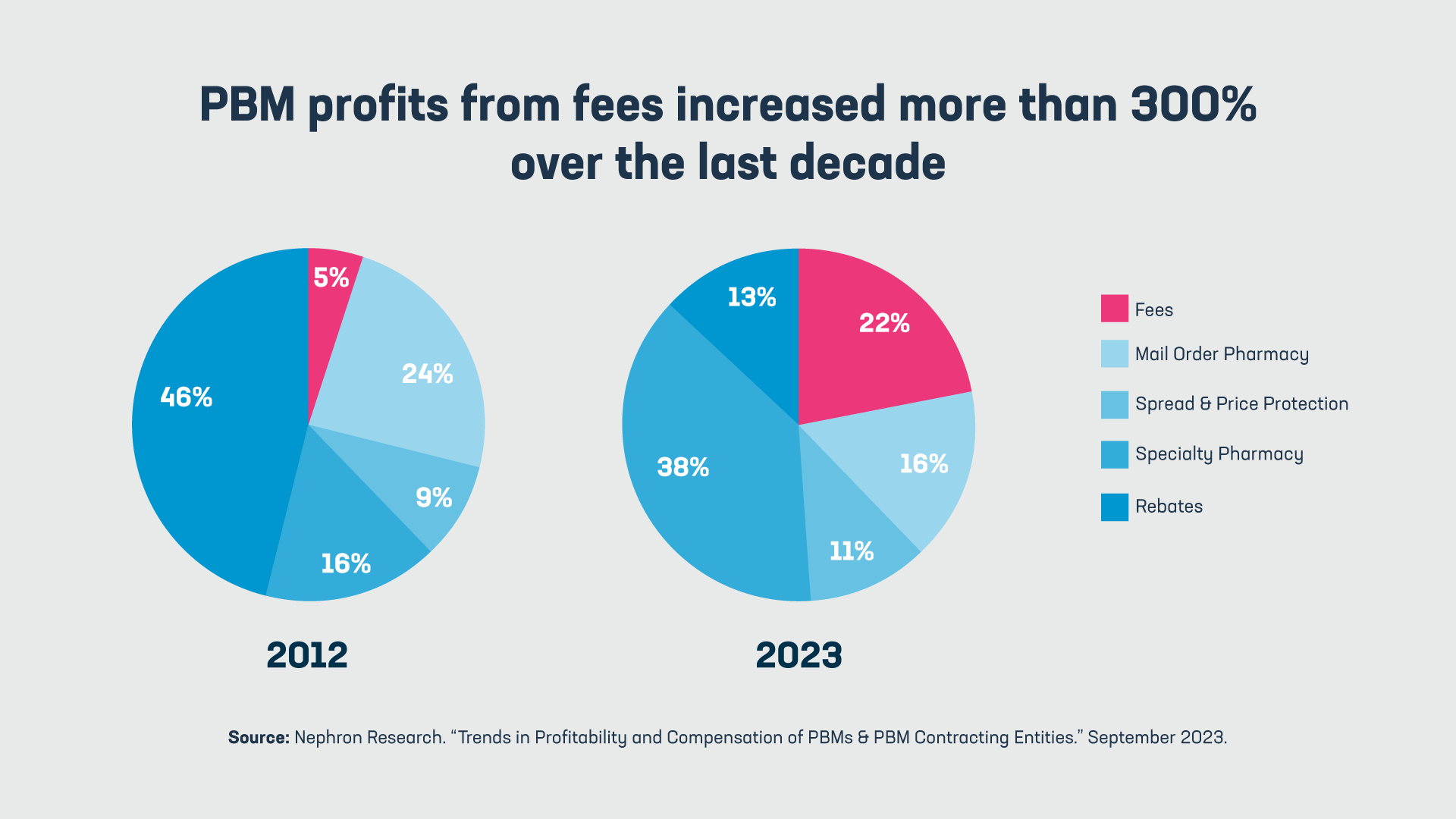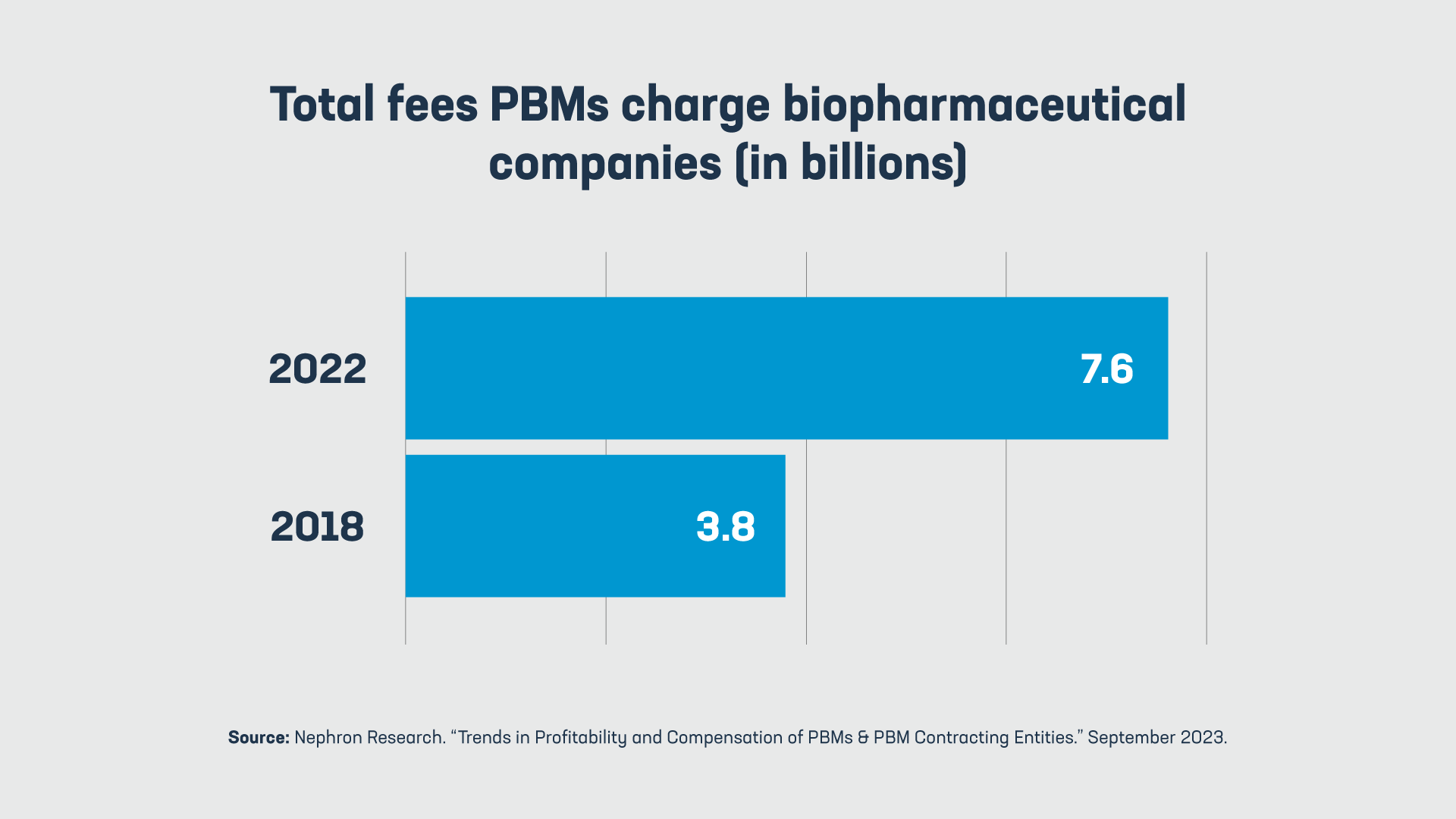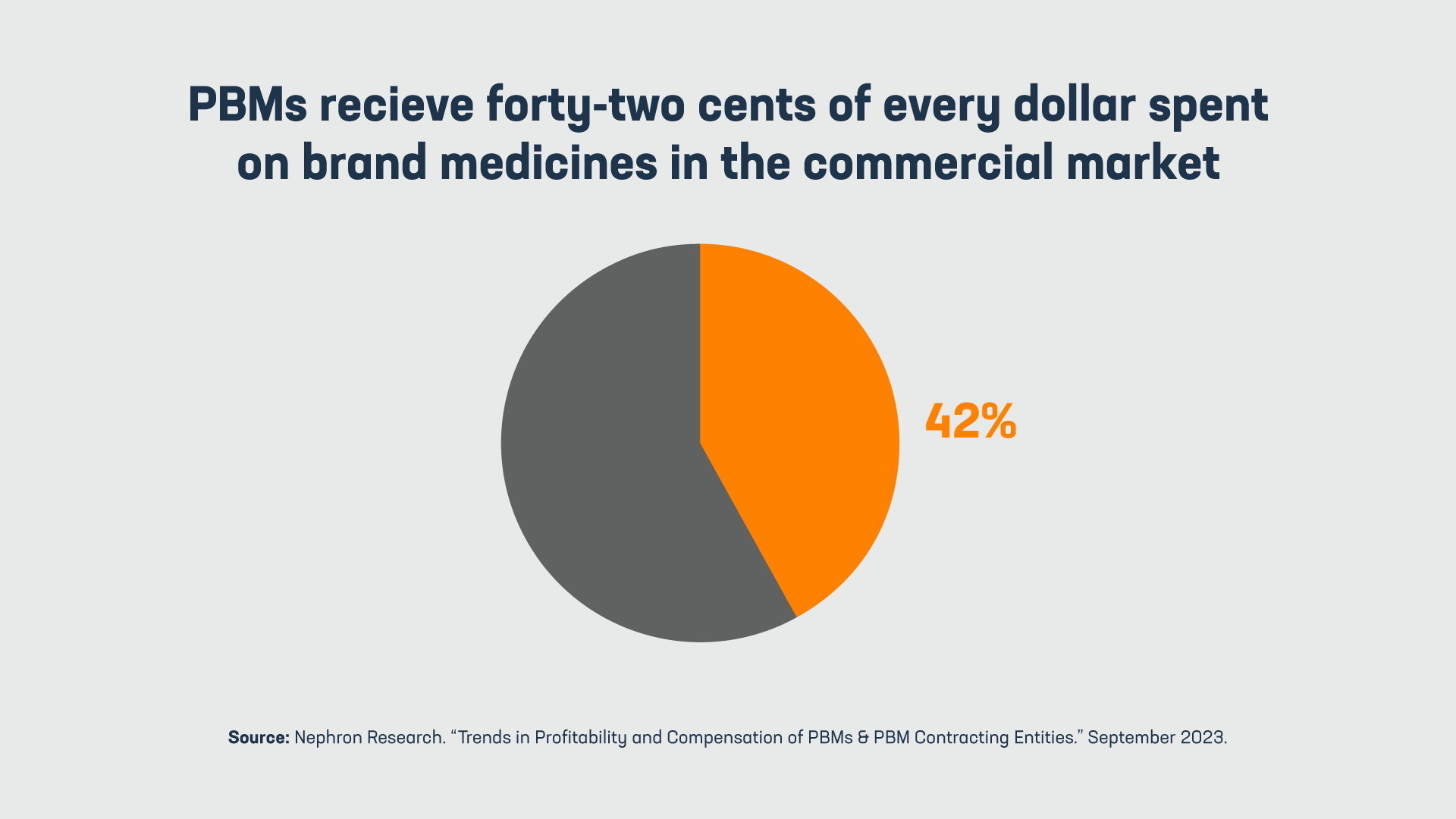Pharmacy benefit managers (PBMs) demand double the amount of fees today than they did five years ago, according to a new report from Nephron Research.
While there’s rightfully been more of a focus on the significant rebates PBMs negotiate, this report shows how the PBM business model keeps shifting to maximize profits and avoid policymakers’ efforts to enhance transparency and accountability.
Here are four key findings from the report, which includes both Nephron’s existing research and new data on PBM compensation from biopharmaceutical manufacturers from 2018 to 2022.
1. The share of PBM profits from fees charged to manufacturers, pharmacies, health insurers, and employers increased by more than 300% over the last decade. These data underscore how PBMs are shifting their business model to rely less on commercial rebates as a profit center. Instead, PBMs increasingly make more money from opaque fees and steering patients to pharmacies they own.

2. Fees that PBMs charge biopharmaceutical companies doubled in the commercial market over the last five years, growing from $3.8 billion in 2018 to $7.6 billion in 2022. PBMs have fueled this rapid growth by expanding traditional administrative fees and creating new fees that virtually didn’t exist five years ago. PBMs increasingly funnel these new fees through their opaque contracting entities, which they refer to as group purchasing organizations. That adds another layer of cost and secrecy to the PBM industry.

3. PBMs predominantly tie fees to the price of medicines, which survey respondents perceive as a barrier to lower list prices. Experts have warned this can lead PBMs to prefer medicines with higher prices over lower-cost alternatives and increase out-of-pocket costs for patients at the pharmacy. In fact, 2 out of 3 biopharmaceutical companies surveyed by Nephron Research view list price-based fees as a barrier to lowering list prices.
4. Rebates and fees received by PBMs account for 42% of every dollar spent on brand medicines in the commercial market. The total amount of commercial rebates and fees paid to PBMs reached $72 billion in 2022.

Just three PBMs control nearly 80% of the market and they decide what patients pay out of pocket and which medicines they can get. They even steer people toward pharmacies they own that make them more money, regardless of what’s best or most convenient for patients.
The more the veil is lifted on how these middlemen operate, the clearer it is that policymakers must directly address PBM abuses in the system head on if they want to solve the access and affordability challenges patients are facing.
Congress has an unprecedented opportunity to help strengthen market competition and provide meaningful relief to patients and taxpayers.
That starts with breaking the link between PBM compensation and the price of medicines. PBMs should instead receive flat fees based on the services they provide, regardless of a medicine’s price. And, they should share savings directly with patients so they don’t pay more than their insurer pays. These fundamental changes would help address the misaligned incentives that drive up costs for patients, employers, and taxpayers.
PBMs have been allowed to game the health care system to generate more profits at the expense of higher costs for patients, employers and the health care system for too long. It’s time for Congress to act.
To read the full Nephron analysis, click here.
To learn more about the role of PBMs, visit phrma.org/middlemen.






